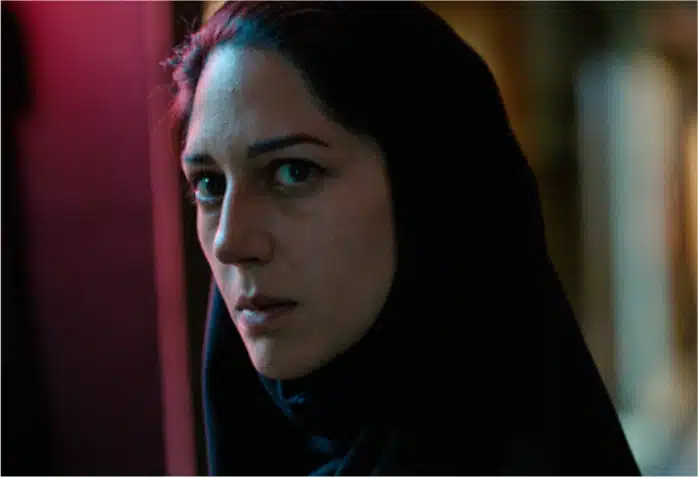

Holding a camcorder, journalist Rahimi (Zar Amir-Ebrahimi) watches as a child describes how his father stalked the streets of Iran’s holy city to strangle prostitutes, and hails the killer as a hero “able to rid society of corrupt women in less than two hours”. Perhaps the strongest scene of the movie, Danish-Iranian director Ali Abbasi takes the line from a real interview—and his entire film is a mirror to real events. But the goal of this striking noir piece is, ironically, similar to the killer’s—only it isn’t the corrupt women Abbasi’s 1hr 56m film is after.
From whichever way you look at it, something is rotten in Mashhad. Abbasi conjures up an atmosphere that’s as spiritual as a curse; where his real Iranian cast are now effectively exiled from their own country, and where religion and lunacy are believable defences for murder. Mashhad is a city where a woman can be raped in her own home just for sharing a cigarette with a man. Inspired by the 2002 serial killings by Saeed Hanaei (who shares the same name as the antagonist played by Mehdi Bajestani and had the equally gruesome habit of garrotting prostitutes), Abbasi’s film attempts to mirror the ultra-conservative zeal of Iran’s religious right (who railed around the real killer’s actions) and creates an entertaining thriller with a deeper question: what makes a community debate if a serial killer is a martyr cleaning up dirt?
Abbasi’s take on that argument are, of course, rather obvious. Modern Iran to him is a “serial killer society”, a phrase the Iranian director Lily Amirpour agreed with, but he spins his web brilliantly, showing, not telling where the malaise lies, and always keeping the tension moving into each new arc. Unlike Blonde which relished in the romanticized, torture porn of voyeurism, cinematographer Nadim Carlson keeps her camera steady; capturing moments of vulnerability that are at once tragic, gruesome, and sensitive to the city’s beating pulse.
Outraged by the lack of police action, Rahimi travels to Mashhad to hunt down Saeed as an outsider journalist. It’s a noir plot that’s been done before; but in the director’s hands, it builds exposition quickly, especially as Rahimi hits a brickwall against the largely apathetic population who revere the city of Mashhad as a place too sacred for scandals. As Rahimi’s opens up new avenues through her investigation by the second act, a lean and well-paced structure keep that spider’s web untangling quickly—but at the cost of taking its time with the source material.
With Iran still reeling from civil unrest triggered by demands for female rights, Abbasi is open about the parallels to the murders of 2002 and the attitudes of 2023—alongside the shadowy ethics of Iran’s religious state system. It’s dense, heavy material that’s hard to treat lightly, but in riffing off noir tropes and lightning pacing, Abbasi commits just one small crime of passion: it comes across as too gripping to be true.
Interested about the crisis in Iran? Abbasi’s Holy Spider noir film isn’t far off the mark, according to Iranian director Lilly Amirpour. Read our own exclusive interview with Lily Amirpour here, where she discusses Iran’s politics and the process behind her work.





